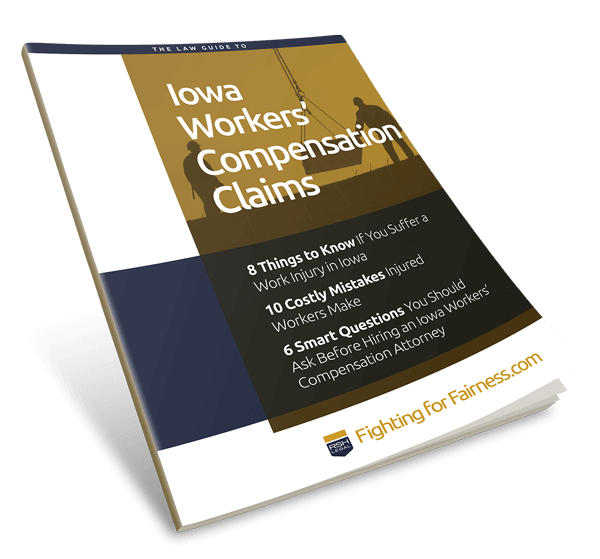Have you been receiving weekly checks from your Iowa workers’ compensation insurance company after an injury? Often when I am speaking to individuals for the first time, they will tell me the insurance company has sent them checks each week. But when I ask them if they know how this check was calculated or the purpose of the money already received, most don’t fully get how this impacts their claim.
Understanding why you receive that particular weekly amount is important in any Iowa workers’ compensation case. This “rate” of weekly benefits is how both temporary disability and permanent disability benefits are paid to injured workers in Iowa.
Once we start investigating our new clients’ cases, we often find out that these weekly checks sent by the insurance carrier are not enough. Underpayments of your weekly benefit check by an insurance company can significantly hurt your ability to get by and pay your bills, adding insult to injury when you’re already dealing with injury recovery potential stresses of not being able to work.
Like most parts of Iowa’s workers’ compensation system, how much you are owed in weekly benefits is controlled by the rules that govern our system.
As a starting point, an injured worker’s weekly rate is about 80% of their average weekly earnings after taxes, or approximately 60% of the injured worker’s gross – as in, before taxes – weekly wages. This amount varies, but the rate calculation table from the Iowa Division of Workers’ Compensation closely follows this general principle.
What is Your Iowa Workers’ Compensation Rate?
To correctly calculate what you are owed on a weekly basis, your gross weekly earnings (or “average weekly wage”) must be determined. The average weekly wage is defined as the recurring payments by an employer to an employee before any deductions or withholdings. The law also excludes certain types of pay at higher rates, such as overtime.
For a worker that is paid hourly, the average weekly wage is calculated by taking the previous 13 full weeks of pay before the injury occurred and averaging it out on a per week basis.
Assuming the average weekly wage has been calculated correctly, the next step is determining whether the injured worker is married and how many dependents can be claimed. These classifications impact what your weekly rate would be. So, to determine the weekly rate of compensation, one must calculate:
- Your average weekly wage or gross earnings,
- Your marital status, and
- The number of dependents you have.
This information is then charted on the rate calculation table provided by the Iowa Division of Workers’ Compensation. Once reviewing the table, the weekly rate of compensation should be about 80% of what the injured worker’s average spendable earnings are each week at the time of the injury.
Are You Receiving the Right Amount in Your Iowa Work Comp Checks?
As you can see, this calculation can be complex, and insurance carriers will often get it wrong. They might fail to include overtime pay completely from their calculations. Additionally, the work comp insurance company will often include weeks that do not qualify as full weeks. The employer and insurance carrier might also improperly determine the employee’s marital status or how many dependents you are entitled to for your rate.
These numerous factors are all reasons that you should not just rely on the calculations of the insurance company. The weekly rate calculation impacts the amount of benefits one can receive during the entire span of their Iowa workers’ compensation claim. Because of that, we encourage injured workers who contact us to keep good records of the payments received and verify the rate calculated by the insurance carrier. If you want to know if you’re receiving the right amount of weekly workers’ compensation benefits, contact RSH Legal today.




